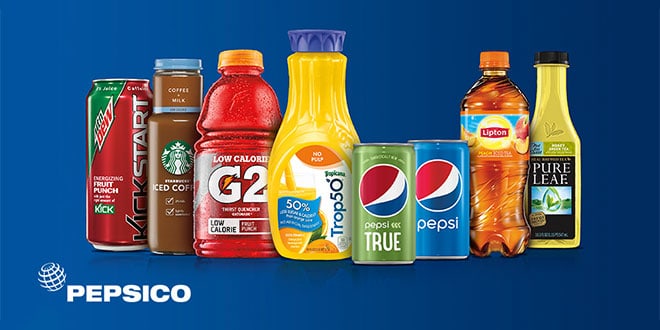PEPSICO’S LATEST PUSH FOR 100% RECYCLABLE PACKAGING

The multinational food and beverage corporation PepsiCo, Inc. (PEP) has announced its collaboration with biotech company Danimer Scientific in the production of compostable packaging to further its 2025 sustainability agenda.
“From the start PepsiCo has taken a holistic approach to our sustainability work,” says PepsiCo Vice Chairman and Chief Scientific Officer Dr. Mehmood Khan. “Our first objective is achieving long-term profitability, and that requires sustainable solutions to grow our business while minimizing our environmental impact. Our plan to scale Danimer Scientifics’ technology is a step toward achieving both our greenhouse gas emission reduction and our recoverable and recyclable packaging goals.”
The agreement is expected to strengthen existing business ties between the two companies and promote the expansion of Danimer Scientifics’ NodaxTM PHA plant while it develops biodegradable film resins to meet the demands of PepsiCo’s international snack food portfolio.
“Danimer Scientifics’ partnership with PepsiCo marks a significant milestone as we continue to expand our biopolymer technology to provide innovative bioplastic solutions to a wider range of applications and products,” says Danimer Scientific’s CEO, Stephen Croskrey. “We’ve been developing a relationship with PepsiCo for the last seven years, and as one of the largest food and beverage companies in the world, their commitment to limiting the environmental impacts of their products can actuate real change in the way of sustainability.”
Through the injection of sustainable business practices into its long-term business strategy via the use of Nodax PHA bioplastic, PepsiCo hopes to deliver top-tier financial performance and continue its transition to 100% biodegradable packaging in the future.
Nodax PHA is a naturally occurring biopolymer produced by microbial bacteria as they ferment organically sourced oils. Danimer claims that Nodax PHA is both sustainably sourced and proven to be capable of replacing many short-term-use petroleum-based plastics for a competitive level of performance and price. Additionally, its light weight and added flexibility means it costs less — and emits fewer carbon emissions — to transport.





